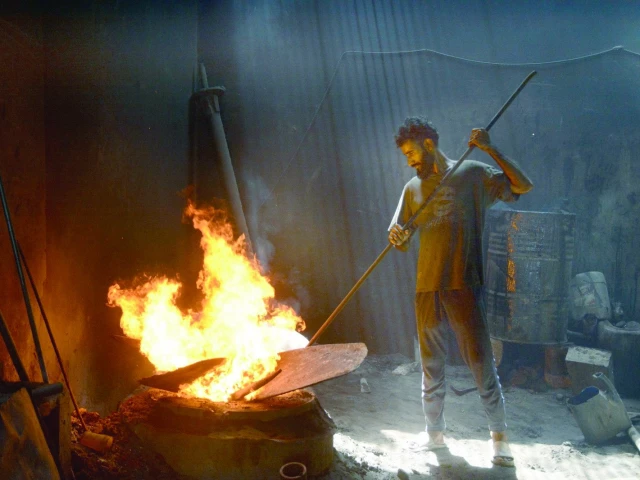Enforce minimum wage: trade unions
Say 99% not receiving legally mandated wages

Speakers at a seminar organised in connection with International Labour Day highlighted the government's failure to enforce the minimum wage laws in the country. The seminar, organised by the Pakistan Institute of Labour Education and Research (PILER) on Wednesday, was attended by trade union leaders, government officials, and labour rights activists.
Participants said that spiraling inflation and ongoing currency devaluation have eroded the real value of wages in Pakistan, making it difficult for workers to afford even basic necessities, despite the existence of minimum wage laws.
Nasir Mansoor, labour representative on the Sindh Minimum Wage Board, opened the discussion with a pointed critique of employer practices. "Employers are willing to donate to charity, but not to pay fair wages to their workers," he said.
He stressed that the country's legal minimum wage is no longer sufficient in light of inflation and highlighted the lack of collective bargaining rights for the majority of workers. "Ninety per cent of workers are denied the right to organise. While ethnic or racial identity may matter to many, we must remember that we are workers first," he said.
Bushra Arain, representing the Sindh Lady Health Workers Union, shared firsthand accounts of organising contract workers under hostile conditions. "A pharaoh is sitting on every decision-making seat," she said, describing the authoritarian structures that suppress workers' rights. She recounted how her union's resilience enabled them to protest despite facing arrests and violence.
PILER's Mirza Maqsood Ahmed spoke about the technical mechanisms through which employers evade minimum wage compliance. He explained how employers exploit ambiguities in the labour laws, including arguments that social security and EOBI contributions should be counted as part of wages. He also noted the lack of classification systems for skilled, semi-skilled, and unskilled workers, which allows employers to minimise wage payouts and avoid providing additional benefits like gratuity.
Senior trade unionist Qamar ul Hasan offered a stark historical comparison to illustrate the diminishing value of the minimum wage. "In 2001, 2.5 months of minimum wage earnings could buy one tola of gold. Today, it takes 8.5 months," he said. Hasan added that although the official minimum wage in Sindh stands at Rs37,000, an estimated 99 per cent of the country's 80 million-strong labour force is not receiving this legally mandated amount.
Athar Shah, Director General of Shop Establishment, acknowledged the state's failure to enforce wage laws. "We are ashamed that despite having legal provisions, we cannot ensure their implementation," he admitted. Shah added that many workers seek jobs that offer overtime because the base wage alone is insufficient to support their families.






















COMMENTS
Comments are moderated and generally will be posted if they are on-topic and not abusive.
For more information, please see our Comments FAQ